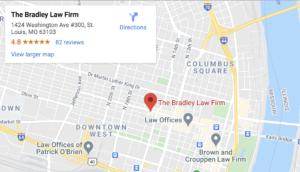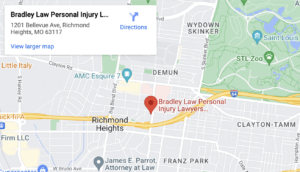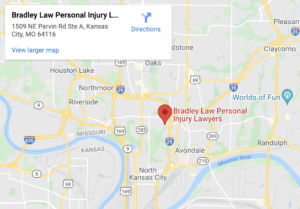
When you suffer a personal injury that someone else bears liability for, Missouri law entitles you to compensation for all of your losses. This doesn’t just mean medical bills or pain and suffering. If you suffered serious injuries, you might have missed work while you were recovering—and that costs money.
Table of Contents
Loss of Earnings
The terms “lost earnings” and “lost wages” mean just about the same thing, except that people normally don’t refer to the pay of a salaried worker as “wages.” Typically, the terms “lost earnings” and “lost wages” refer to temporary losses of income arising from a personal injury. It might include, for example:
- Income from work days you lost while you were in this hospital;
- Income from work days you lost while you were at home recovering from your injuries;
- Income you lost while missing work to undergo medical treatment;
- Lost sick leave or vacation time that you had to use because of your injuries.
Be sure to include bonuses and overtime that you would normally expect to earn in your calculations.
Sick Leave and Vacation Time
You might be surprised to know that you can claim full compensation for sick leave and vacation leave days that you used up because of your injuries. It doesn’t matter that you were fully compensated for these days.
Sick leave and vacation leave are valuable resources. Using them up because of an injury depletes them for future use.
Calculating Lost Earnings if Your Income Is Variable
Not everybody earns the same amount of money every month. Some workers’ income varies widely. So how do you claim lost income when you don’t know for sure how much money you would have earned on the work days you missed? Read on.
Salespeople working on commission
If you are a salesperson working on a commission, your best bet might be to average your commission over a few weeks or months and then calculate a daily or weekly average. You can then plug this average into the amount of time you missed work to arrive at a probable total for your lost earnings.
Tipped employees
Calculating your lost tips is simply a matter of averaging them out and multiplying the daily average by the number of work days you missed.
Self-Employed Persons
Calculating your lost earnings gets even more difficult if you are self-employed. How do you calculate the value of a meeting with an important potential client that you had to cancel due to your injuries?
You might use your business records to calculate an average weekly or monthly income, just as you would if you were a salesperson working on commission. You might even use previous tax returns to help you calculate lost income.
Diminished Earning Capacity
Missing work while you recover from an injury costs a lot of money. What can cost even more money is if you have to retire early or permanently accept a lower-paying job because of the limitations imposed by your injuries. You deserve compensation for those losses too. Missouri calls this component of damages diminished earning capacity.
Proving Diminished Earning Capacity
You can prove diminished earning capacity in much the same way that you prove lost (short-term) earnings. The problem is that projecting losses far into the future is both more complicated and more speculative than proving losses you have already incurred.
The best way to arrive at an accurate figure is to hire an expert to calculate your diminished earning capacity. A good personal injury lawyer should have a working relationship with at least one such expert.
Why You’ve Got To Get Your Calculation Right the First Time
If you intend to claim compensation for lost income that extends into the far future (in other words, diminished earning capacity), you’ve got to get your calculations right the first time.
Suppose, for example, that you lost $850,000 in diminished earning capacity, but you only ask for $400,000. You could run out of money several years from now. By then, it will be far too late to come back and ask for more money. In other words, you will have lost $450,000.
Special Case: Workers’ Compensation Claims
If you suffer a workplace accident, you might be stuck with claiming workers’ compensation benefits. There are some advantages to this approach. You don’t have to prove fault to win your claim, for example, and you can usually win even if the accident was your fault. The problem is that compensation is extremely limited, especially if you were enjoying a high income before your accident.
The Loophole
If you can hold a third party responsible for your accident, you can file an ordinary personal injury claim against them. For example, if you suffered an injury on a construction site, the owner may have negligently failed to repair a dangerous condition. You will have to prove that the dangerous condition caused your injury, however.
A St. Louis Personal Injury Lawyer Can Help You Calculate Your Damages
After an injury, your financial health might take a hit due to lost wages or reduced future earnings. A seasoned St. Louis personal injury lawyer can ensure you get the compensation that is rightfully yours. Contact our office today or give us a call at (314) 400-0000 to schedule your consultation with one of our experienced professionals at Bradley Law Personal Injury Lawyers.




